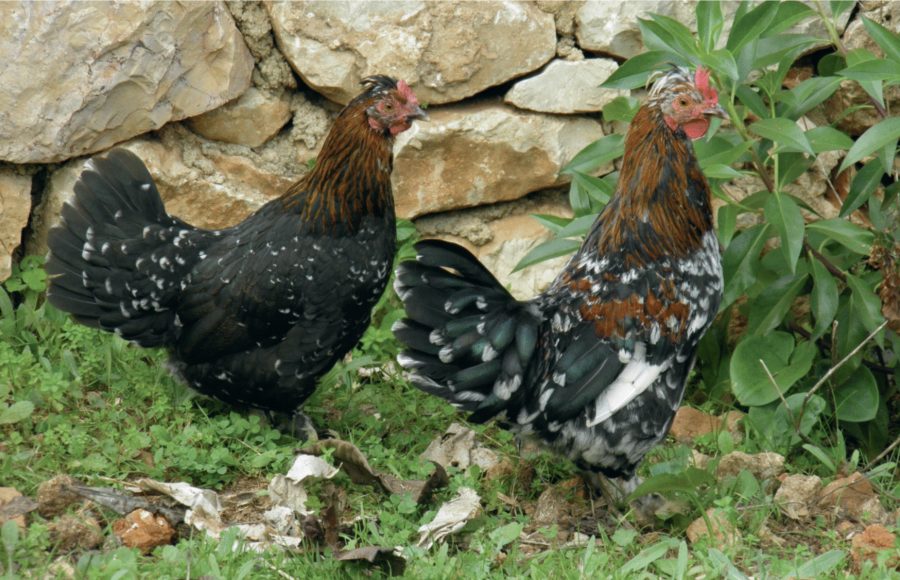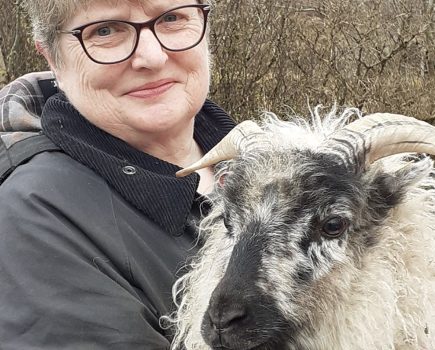Hens are very vocal birds, but why do they make so much noise when egg-laying? Paul Donovan explains…
One of the most important aspects of the chickens social world, is vocalisation. It is the way in which individuals maintain contact with one another, and express happiness, sadness, state of health or even a threat warning. So, to hear your hens clucking away contentedly, is a good thing, as you know the flock is ‘gelling’ together. It is when they are quiet, you should worry. Another time when the hens will be vocal, is pre-and post-laying. This again can have several meanings. It can indicate frustration at not being able to find a suitable spot to lay her eggs, or contentment that she has laid them.
With this in mind, you would think that being so noisy around laying time would give themselves away to a predator but, as we shall see later on, that is not the case. Egg laying, and then incubating them is a vulnerable time for the hen. She is at great risk from predators, as her attention is drawn away from keeping an eye out fort hem, and diverted into egg laying.
Because she may have left the flock in search for a quiet spot to lay, there is no one there to look out for her back. Surely, then, this is the time when she needs to be at her quietest, so as not to draw attention to herself, as it is a time when she is extremely vulnerable. But hens can be surprisingly vocal pre and post laying, which you would imagine would give her position away. However, when you delve into the nitty-gritty of vocalisation during laying, making a lot of noise can have a lot of different meanings.
THE EGG SONG…
Before we go on to try and dissect why hens are so vocal during laying, we need to clarify something. Hens have a repertoire of over 24 songs at their disposal, which are used to express different emotions. Most of these are made up from what could loosely be interpreted as bawks, clucking and cackles. Researchers studying vocalisation in hens, discovered that during egg laying, a hen emits a very distinctive series of sounds, within a low frequency range.These give the calls harmonic undertones, which the researchers called the ‘egg song’.
The researchers also discovered that the egg song is not limited just to when the hens are laying. It can also be used when the hen anticipates something good is about to happen – such as being let out of the coop, or enrichment is being offered. It may also be used when a familiar face is seen following a period of time apart. One could conclude from this, that ‘singing’, portrays a sign of contentment, whereas ‘clucking’ is viewed more as being agitated, annoyed, distressed, or there is the sign of danger around.
This article extract was taken from Practical Poultry, in the May 2024 edition of The Country Smallholder. To read the full article, you can buy the issue here.
To receive regular copies of The Country Smallholder magazine featuring more articles like this, subscribe here.
For FREE updates from the world of smallholding, sign up for The Country Smallholder newsletter here.








